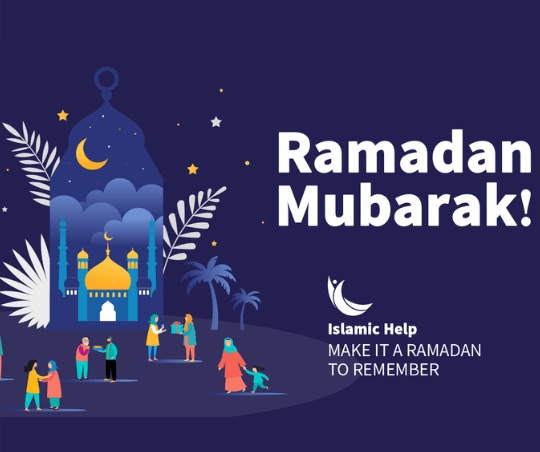Ramadan FAQs 2023
“Those who give to charity night and day, secretly and publicly, receive their recompense from their Lord; they will have nothing to fear, nor will they grieve.” [Qur’an, Surah Al-Baqarah 2:274]
Charitable giving is highly commended in Islam, as it is in most global traditions. It is through this act of donating that one is elevated to a higher spiritual plane and feels the benefits of serving humanity. Ramadan is the ideal time to give to charity; whatever form of giving it may be.
A primary form of charitable giving, known as Zakat, is one of the obligatory Five Pillars of Islam. Zakat, which means to purify, is the act of giving alms to the poor and needy, and it is mandatory for every adult Muslim of sound mind and means. Similarly, many people choose to give Sadaqah and Lillah, which are both voluntary donations, during Ramadan. Another form of giving, known as Fitrana, is a compulsory donation given just before the Eid-ul-Fitr prayer at the end of Ramadan.
In this article, we will aim to address the most frequently asked questions about Ramadan.
What is Ramadan?
Ramadan is the ninth month of the Islamic calendar and a time when Muslims are obliged to observe one of the Five Pillars of Islam – fasting. Each day during Ramadan, from dawn until the sun sets, Muslims abstain from eating, drinking, smoking, sexual relations or engaging in any acts deemed to be ill-natured or excessive.
The fast begins each day at Suhoor, also known as Sehri (just before sunrise) and ends at Iftar (directly after sunset). It was during the month of Ramadan that the Holy Qur’an was revealed to the Prophet Muhammad (Peace Be Upon Him) as guidance for mankind.
When does Ramadan start?
The start of Ramadan is based on the Islamic lunar calendar, so each year it moves forward approximately 10 or 11 days, depending on the sighting of the new moon. The fasting phase finishes on the sighting of the next new moon, which takes place after 29 or 30 days.
In 2022, Ramadan is estimated to begin on or around the 2nd April, dependent on the sighting of the moon.
When does Ramadan end?
Ramadan ends after 29 or 30 days, depending on the sighting of the new moon. The end of Ramadan is marked by the celebration of Eid-ul-Fitr, the festival of breaking the fast. It occurs on the first day of the next lunar month, Shawwal, and begins with special prayers at the mosque, the gathering of families and friends and celebratory meals. It is also a special time to ask for forgiveness and make amends.
In 2022, Ramadan is anticipated to end on or around the 1st May, with Eid-ul-Fitr taking place on or around the 2nd May - all dates are subject to the sighting of the moon.
Is fasting in Ramadan compulsory?
Fasting is compulsory for Muslims once they reach puberty, although many children fast for as many days as possible. However, there are exemptions for those who are seriously ill or whose health would be at risk through fasting; the elderly and the infirm.
What is a fast?
Fasting (known as Sawm) is one of the Five Pillars of Islam. It is a willing act of abstaining from eating, drinking and smoking, from dawn until dusk. It also includes refraining from engaging in any sexual relations or sinful behaviour, such as backbiting, cursing, having bad intentions and much more.
What are the benefits of fasting?
In removing the comforts of daily life, fasting essentially focuses on purifying the body and mind, increasing spirituality and strengthening faith. The rewards during fasting are believed to be multiplied during the auspicious month of Ramadan. Therefore, increased recitation of the Holy Qur’an and offering of prayers is most beneficial.
Who can fast?
Fasting is obligatory for all adults in Islam, and children who have attained the age of puberty. Those who miss a fast because of illness or women who are having their period have to make up that fast at a later date. Those who cannot fast at all because of health reasons, old age or infirmity, pay fidyah as compensation. Fidyah is a sum that should provide one person with two meals, or two people with one meal, for that day.
Can I drink water during fasting?
You cannot drink or eat anything when fasting.
Continue Reading...
Continue reading next section for more answers to your popular FAQ's about Ramadan...
I forgot I was fasting, is my fast broken?
What type of food(s) should I be opening my fast with?
Which Duas (Prayers) are recommended during Ramadan?
Can I brush my teeth?
What exemptions are there?
What is Sadaqah?
What is Fidyah?
What is Fitrana?
What is Kaffarah?
How to Donate?




